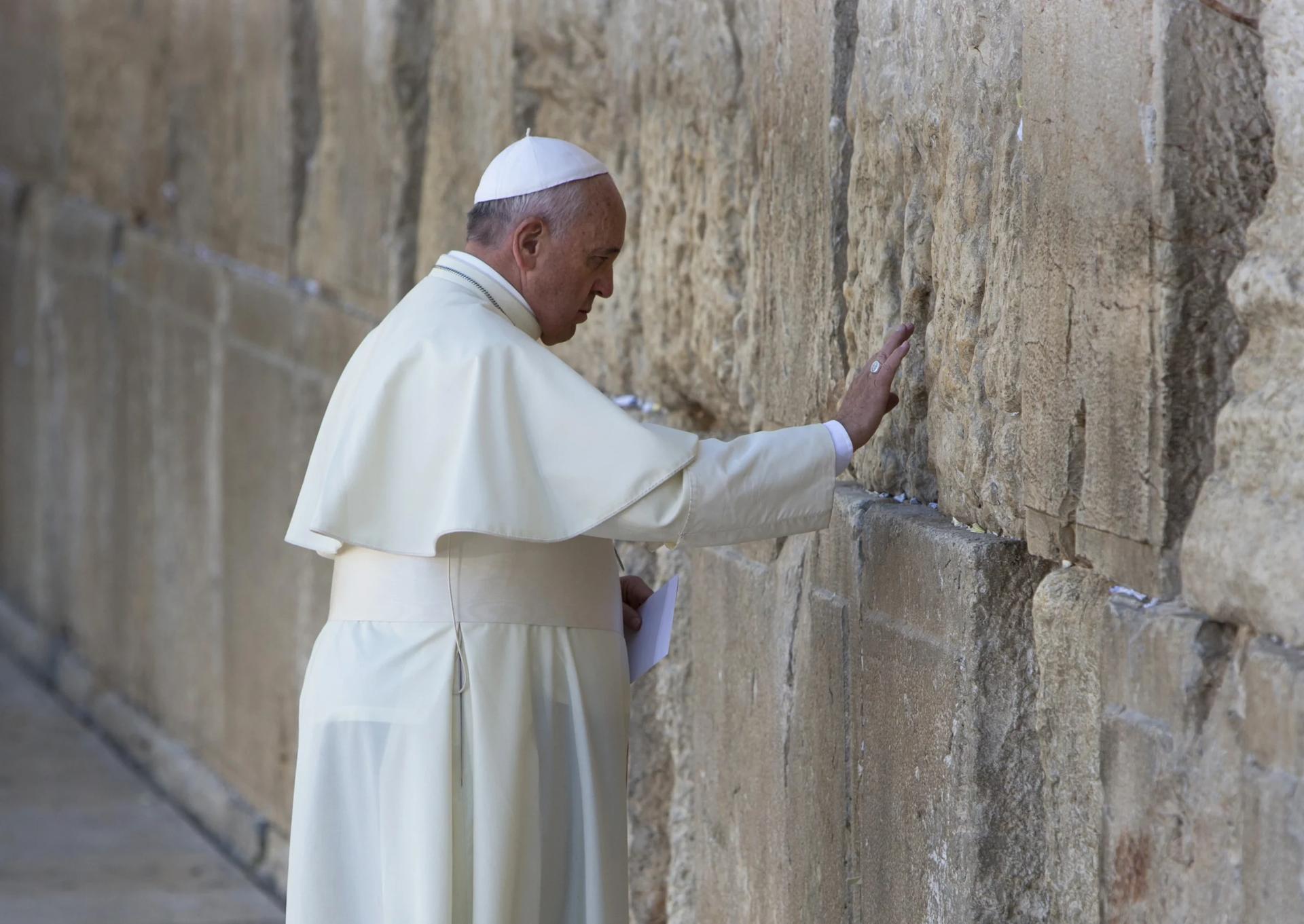As the cardinals of the Catholic Church prepare to gather in conclave for the election of a successor to Pope Francis, various issues facing the Vatican are on their minds, one of which is likely to be the Holy See’s present frosty relations with Israel.
Relations with the State of Israel are at their lowest level since diplomatic relations were established just over 30 years ago, a chill that followed the Oct. 7, 2023, surprise attack by Gaza-based Hamas militants that left 1,200 Israelis dead and more than 250 taken as hostages and subsequent Israeli invasion of Gaza.
Of the roughly 100 hostages who remain in Gaza, a third are believed to be dead, according to Israeli Defense Forces.
Israel immediately launched a retaliatory offensive in Gaza to oust Hamas from leadership, with the subsequent conflict resulting in the deaths of over 60,000 people in Gaza, according to Palestinian estimates.
Immediately after the October 2023 attack by Hamas, Christian leaders in the Holy Land issued a statement calling “for the cessation of all violent and military activities that bring harm to both Palestinian and Israeli civilians.”
RELATED: Demographics on both sides create headaches in Israel-Vatican ties
The Israeli embassy to the Holy See accused that statement of reflecting “immoral linguistic ambiguity.”
In February 2024, Vatican Secretary of State Italian Cardinal Pietro Parolin told reporters that it was time for Israel to change its strategy in Gaza, explaining “other paths have to be found to resolve the problem of Gaza, the problem of Palestine.”
Israel’s Embassy to the Holy See responded to Parolin’s remarks, calling it “a deplorable declaration.”
Pope Francis also drew criticism from Israel for his own remarks.
“According to some experts,” Pope Francis said in a book released last year, “what is happening in Gaza has the characteristics of a genocide,” calling for an investigation to see if “it fits into the technical definition formulated by jurists and international bodies.”
Also in the book, Francis said he was “thinking above all of those who leave Gaza in the midst of the famine that has struck their Palestinian brothers and sisters given the difficulty of getting food and aid into their territory.”
RELATED: Holy Land Christians say attacks rising in far-right Israel
In his last public appearance at Easter, Francis’s statement said the Holy Land was “wounded by conflict” and home to an “endless outburst of violence.”
His message gave particular attention to the people of Gaza and to the Christian community in the enclave where “the terrible conflict continues to cause death and destruction and to create a dramatic and deplorable humanitarian situation.”
Francis made calls to the Christians in Gaza almost daily during the entirety of the Hamas-Israel war. Even after his death, the pope showed his support by donating his popemobile to the Gaza medical efforts.
All of these actions tried Israel’s patience with the Vatican.
After the death of Pope Francis, the official Israeli account on X shared a photo of the pontiff at the Western Wall in Jerusalem, captioned: “May his memory be a blessing.”
The was quickly deleted by the Israeli government, and an official statement from Israeli Prime Minister Benjamin Netanyahu came four days later: “The State of Israel expresses its deepest condolences to the Catholic Church and the Catholic community worldwide at the passing of Pope Francis. May he rest in peace.”
Why is the deteriorating relationship a major concern facing the next pope, especially given its proximate cause?
Most of the world – the United States being a notable exception – has condemned the Israeli harsh efforts in Gaza, which has killed tens of thousands of people, most of them civilians.
One reason may be the effect it is having on Catholic-Jewish relations.
The Holy See was late in establishing diplomatic relations with Israel, and the “Fundamental Agreement Between the Holy See and the State of Israel” signed in 1993 specifically tied the relationship between the two states to the “unique nature of the relationship between the Catholic Church and the Jewish people, and of the historic process of reconciliation and growth in mutual understanding and friendship between Catholics and Jews.”
Another reason is the deteriorating relationship between Israel and the Palestinians, which will affect the place of Christians in the Holy Land.
Trump himself has been able to throw gasoline on the conflict by calling for the depopulation of Gaza, and putting it under U.S. rule, pledging he could make it the “Riviera of the Middle East.”
Although most of the world thinks this is absurd, around 70 percent of the people of Gaza are technically refugees and therefore do not have a right to permanent status in their current residence (most of them claim a “right to return” to Israel, which the Israeli government will never give them).
If Trump somehow gets to go through with his plan – which involves resettling Palestinians from Gaza, many of whom are displaced even in the Strip, in other Arab nations – this will affect the West Bank, where over 25 percent of the Palestinians are technically refugees. If they were removed, the Israeli population in the West Bank would increase to around 25 percent.
This would make the Two-State Solution impossible, and also destroy any possibility of any form of an international protectorate over Jerusalem—a proposal the Holy See has supported since shortly after the UN advanced the idea of treating Jerusalem as a corpus separatum in the late 1940s.
More broadly, the persistent instability and intense violence in the Holy Land adversely affects the small – and shrinking – Christian population, as well as the places considered sacred by the world’s Churches.
It could be the new pope will need to be closely involved with the homeland of Jesus Christ.
Follow Charles Collins on X: @CharlesinRome














